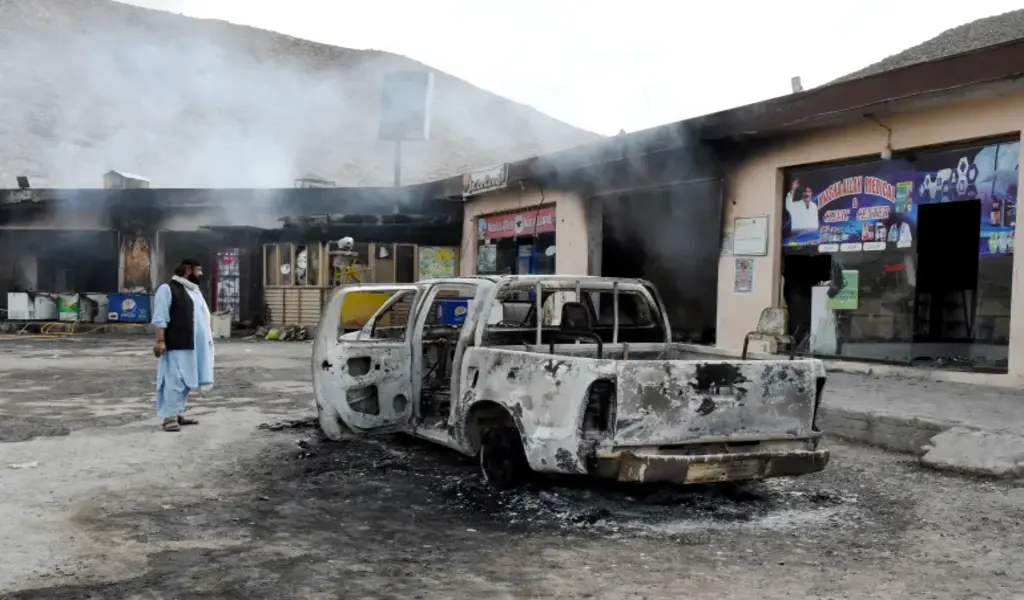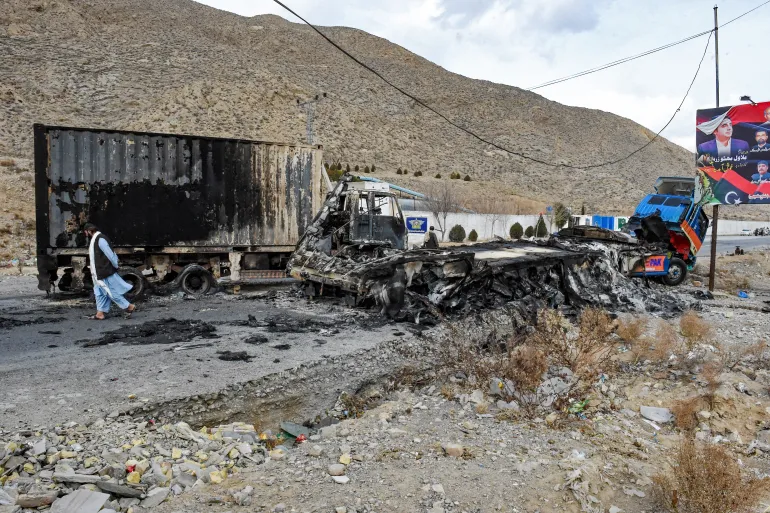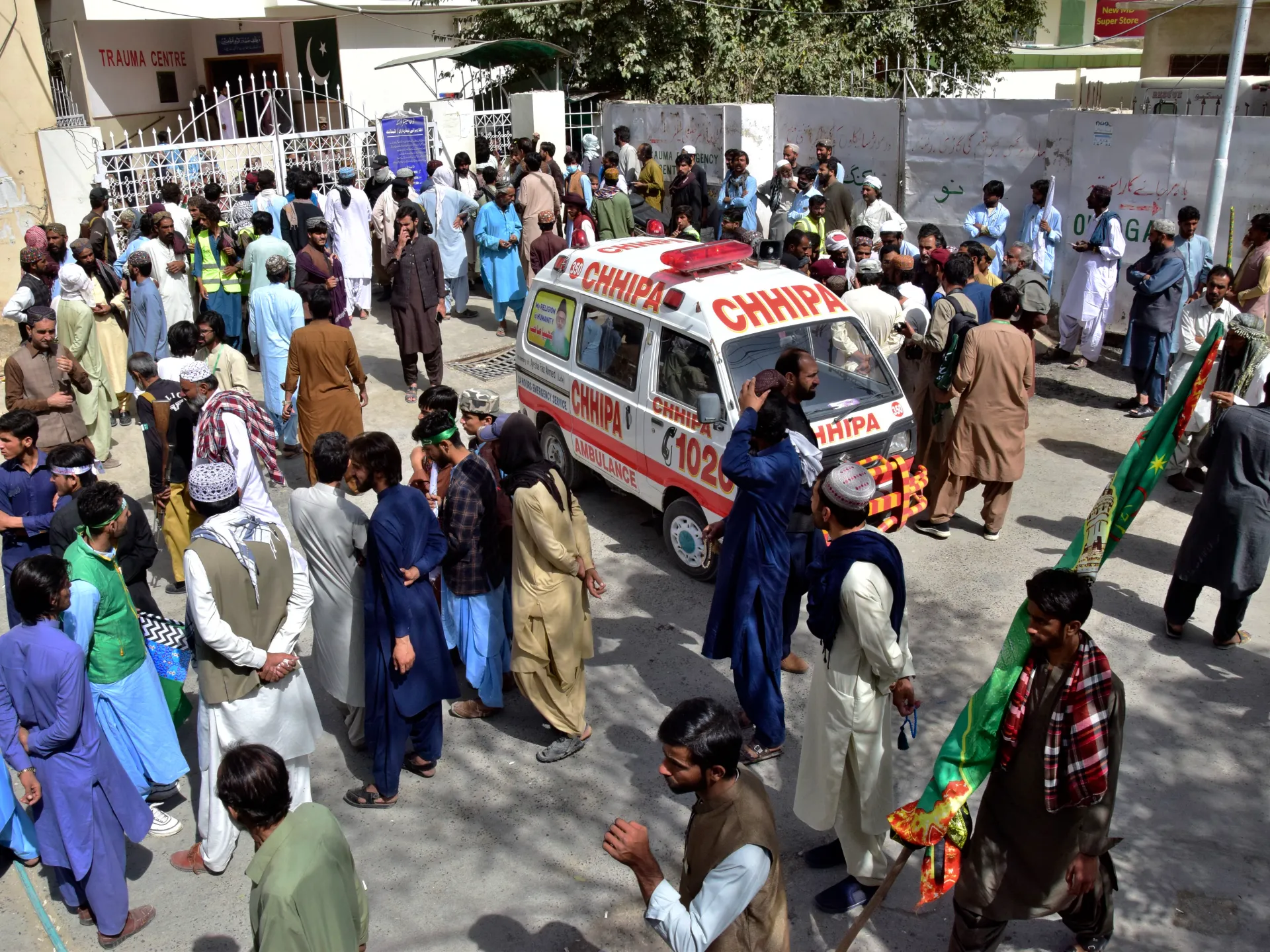(CTN News) – A nighttime attack in Pakistan’s southwestern Balochistan region claimed the lives of at least six combatants and four security officials.
Jan Achakzai, the provincial information minister, claimed on Tuesday that the assailants, members of the Balochistan Liberation Army (BLA), used weapons and rockets to target military and security sites in Mach, 65 kilometres (40 miles) south of Quetta, the provincial capital.
As they encountered resistance, the assailants went to “less secure” places, focusing their attack on the Mach police station, an officer told Al Jazeera on condition of anonymity because he was not permitted to speak with the media.
“At the moment, a clearing operation is under way in the suburbs of the city,” the official stated. “The terrain here is quite difficult, but we are hopeful to wrap it up by the end of the day.”
In a statement to Al Jazeera, the BLA claimed responsibility for the attack, claiming that its “freedom fighters” carried it out.
The BLA is a prohibited armed group that is part of a larger revolt in Balochistan, Pakistan’s largest and least populous province bordering Iran and Afghanistan. Despite its abundant minerals and natural gas reserves, the province is also the poorest in the country.
Shuja Kasi, Balochistan’s inspector general of prisons, said the attack caused minimal damage to the police station and the nearby jail, where 800 detainees, including 90 on death row, were safe.
“There was some damage to the doors and windows were broken while some staff quarters used by officials were mildly damaged,” a source told Al Jazeera.
Mach resident Iqbal Yousufzai reported a big explosion at 9 p.m. (16:00 GMT) on Monday, followed by over 12 hours of firing.
“The explosion destroyed the windows of my residence. After that, the firing began and continued intermittently until at least 8 a.m. on Tuesday,” he claimed.
The Balochistan rebel movement, which has existed for decades, accuses the Pakistani government of neglecting its population and distributing resources unfairly.
The revolt has witnessed multiple attacks on Pakistani security forces and Chinese citizens working in the province on the $60 billion China-Pakistan Economic Corridor (CPEC), prompting a strong response from the Pakistani government.
The security forces have regularly been accused of human rights violations, including extrajudicial murders and disappearances of ethnic Baloch persons suspected of supporting the insurrection.
The attack occurred amid increased global focus on Balochistan following an Iranian air strike and a month-long sit-in by Baloch people in the capital Islamabad.
Last month, Iranian soldiers attacked inside Pakistani territory, killing at least two youngsters on the outskirts of Panjgur, Balochistan. Iran said its operation was aimed at another armed group located in the area, Jaish al-Adl.
Two days later, Pakistan launched a retaliatory attack, killing at least nine persons identified by Iranian media as “non-Iranians”. Islamabad stated that its response was based on “credible intelligence” that some armed organisations had been granted asylum in Iran.
The Baloch demonstration in Islamabad erupted after the assassination of a young man who state officials claimed was a rebel, but his family contested the charge. After their protests in Balochistan failed to achieve their demands, Baloch protesters travelled to Islamabad in December for a week-long sit-in.
Baloch rebels have already opposed Pakistan’s next general election on February 8, according to security analysts.
“The Baloch secessionists remain the only faction that has continuously targeted election campaigns and party meetings, but the scope of these attacks has not gone beyond corner meetings and election offices,” Iftikhar Firdous, a political analyst, told Al
Firdous, the founding editor of The Khorasan Diary, a news and research portal that analyses and analyses regional security concerns, stated that the timing of the strike is the “more interesting part of the optics”.
“The BLA attack in Pakistan seems to indicate that while countries will try their best to maintain diplomatic subtlety in their demeanour, the action at the borders will determine the future course of the conflict,” Firdous said in a statement.








